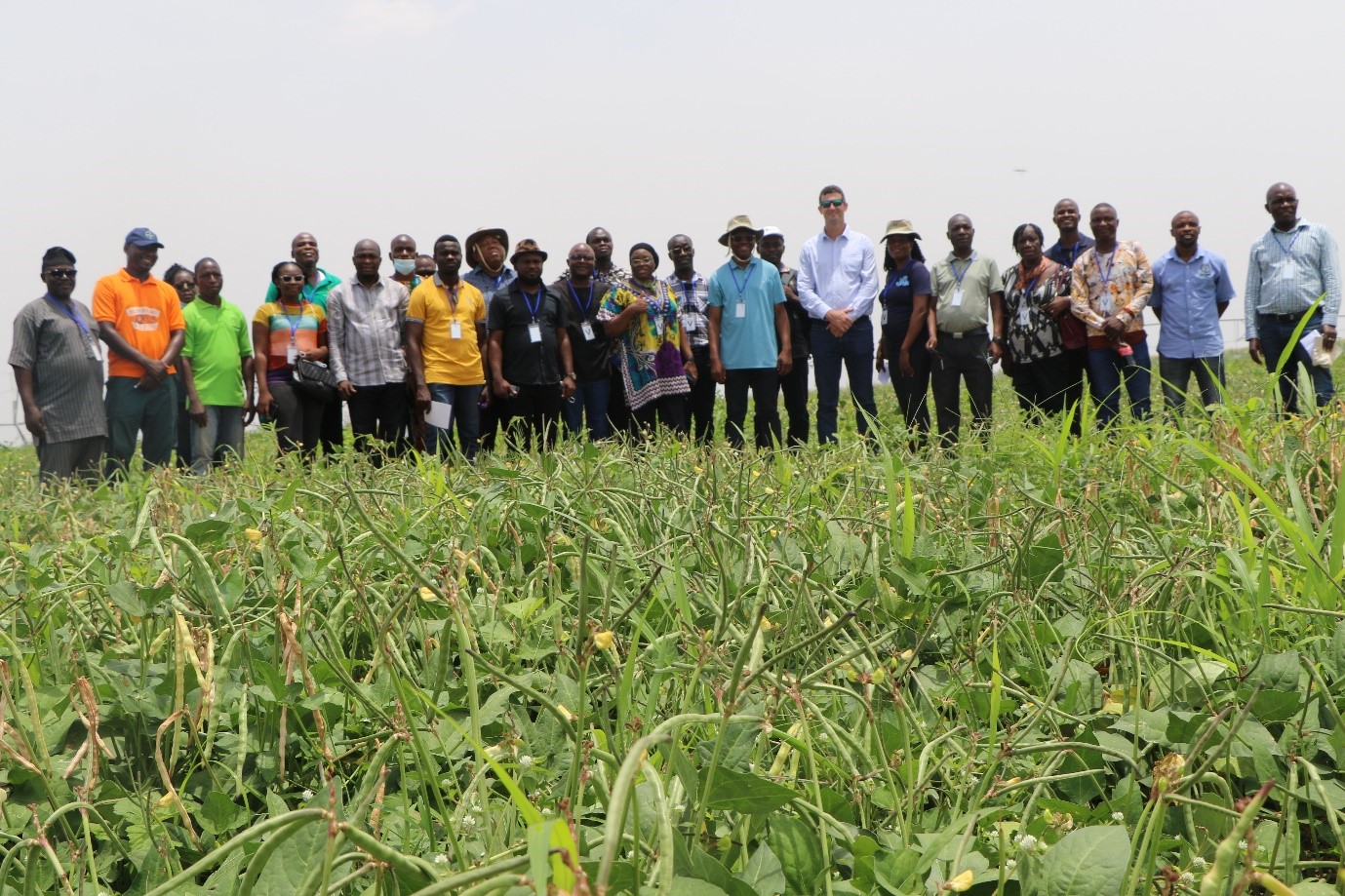
Nigeria’s Minister of Agriculture and Rural Development, Dr Mohammed Abdullahi, has commended Ghanaian delegates for coming to Nigeria to study the processes that led to the approval of the first genetically modified food crop, the Pod Borer Resistant (PBR) Cowpea.
Ghana is also in the process of approving the PBR Cowpea that has been developed by her scientists at the Savanna Agricultural Research Institute (SARI), under the Council for Scientific and Industrial Research (CSIR), after 10 years of laboratory and confined field trials.
In an address to the delegates in Abuja, read on his behalf by the Permanent Secretary in the ministry, Ernest Afolabi Umakhihe, Dr Abdullahi said that Nigeria was pleased to share her experience with Ghana and that the visit marks the beginning of West-to-West collaboration on the African continent.
“Previously, we all rushed to Europe and America to learn about these things, but today Ghana is coming here and tomorrow we may be going over there. This is the new spirit of cooperation among African countries. We have a lot to learn from each other,” he said.
Dr Abdullahi praised local scientists for developing the Nigerian cowpea variety, saying, “When scientists solve societal challenges the hope for attaining food security is guaranteed.”
The team also visited the Minister of Science, Technology and Innovation, Dr Ogbonaaya Onu, who urged them to ensure that the lessons from Nigeria help in informing policy decisions in Ghana.
“Science and technology remain some of our potent weapons in addressing food and nutritional security. With the agricultural initiatives currently going on at the various research institutes, we can boldly say that the era of Africans going to bed hungry is gradually coming to an end,” Dr Onu added.
The team was also received at the National Biosafety Management Agency (NBMA) where the Director General, Dr Rufus Ebegba, told the delegates that his agency was created by an Act of Parliament to ensure that Nigeria benefits fully from safe deployment of modern biotechnology, especially in food production, job creation and biodiversity conservation.
At the Agricultural Research Council of Nigeria (ARCN), the Executive Secretary, Prof. Garuba Sharubutu pledged Nigeria’s willingness to collaborate with Ghana to ensure the country benefits from the immense opportunities technology can offer.
The climax of the weeklong visit was the hosting of Eating-is-Believing event, hosted by the National Biotechnology Development Agency (NABDA), to demonstrate that the PBR Cowpea is safe for human consumption.
Speaking at the event, NABDA’s Director General Prof. Mustapha Abdullahi said that Nigeria has achieved a major milestone with the development and release of the PBR Cowpea variety.
“Biotechnology has proven its potential to help us overcome agricultural productivity challenges, leading to more yield and addressing various breeding limitations that conventional breeding methods cannot address.
“The PBR Cowpea is a classic example of how technology can provide solutions to one of the major challenges to cowpea farming, such as ravaging attacks by Maruca. Technology has taken care of that and its potential to improve other crops has started emerging,” he said.
The leader of the delegation, Hon. Emmanuel Marfo, said the team was impressed with Nigeria’s advanced deployment of agricultural biotechnology to address the challenges of agricultural productivity.
“We have a lot to learn from Nigeria, we have so many things in common. We have so much to take home and it is my sincere hope that we will put to practice everything we have learnt,” he said.
The team was treated to Nigerian delicacies from the PBR Cowpea. Farmers who planted the variety in the last planting season gave testimonies on their one season of interaction with the variety.


















































































